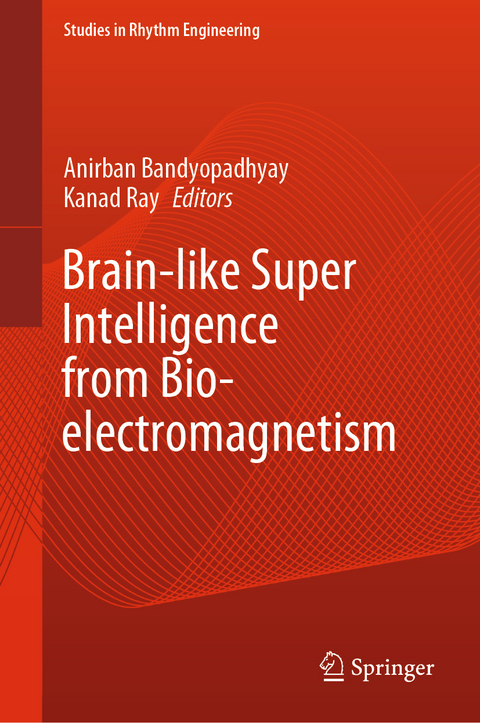
Brain-like Super Intelligence from Bio-electromagnetism
Springer Nature (Verlag)
978-981-97-0231-2 (ISBN)
Dr. Anirban Bandyopadhyay is a principal research scientist at the National Institute for Materials Science (NIMS), Tsukuba, Japan. He completed his Ph.D. in Supramolecular Electronics at the Indian Association for the Cultivation of Science (IACS), Kolkata, in 2005. From 2005 to 2008, he was an independent researcher, as an ICYS research fellow at the International Center for Young Scientists (ICYS), NIMS, Japan, where he worked on the brain-like bio-processor building. In 2008, he joined as a permanent scientist at NIMS, working on the cavity resonator model of human brain and design synthesis of brain-like organic jelly. From 2013 to 2014, he was a visiting scientist at the Massachusetts Institute of Technology (MIT), USA. He has received several honors, such as the Hitachi Science and Technology Award 2010, Inamori Foundation Award 2011–2012, Kurata Foundation Award, Inamori Foundation Fellow (2011–), and Sewa Society international member, Japan. Dr. Kanad Ray isa professor and head of the Department of Physics at the Amity School of Applied Sciences Physics at Amity University Rajasthan (AUR), Jaipur, India. He has obtained M.Sc. and Ph.D. degrees in Physics from Calcutta University and Jadavpur University, West Bengal, India. In an academic career spanning over 22 years, he has published and presented research papers in several national and international journals and conferences in India and abroad. He has authored a book on the electromagnetic field theory. Prof. Ray’s current research areas of interest include cognition, communication, electromagnetic field theory, antenna and wave propagation, microwave, computational biology, and applied physics. He has served as an editor of Springer Book Series such as AISC and LNEE and an associated editor of Journal of Integrative Neuroscience published by IOS Press, Netherlands.
Chapter 1: Exploring the Possibility of Non-local Communication in Human Beings: an Empirical Test of the Information Field Hypothesis.- Chapter 2: HI Applications for ADHD Children: The Graphic Design Perspective.- Chapter 3: Relationship between Intelligence and Universal Consciousness.- Chapter 4: A Genre of Cognitive Evolutions Through Artificial Superintelligence and Robotics Technology.- Chapter 5: Probing the electromagnetic interaction in the protein.- Chapter 6: Revisiting self-operating mathematical universe (SOMU) as a theory for Artificial General Intelligence, AGI and G+ consciousness.
| Erscheinungsdatum | 03.04.2024 |
|---|---|
| Reihe/Serie | Studies in Rhythm Engineering |
| Zusatzinfo | 92 Illustrations, color; 80 Illustrations, black and white; XIV, 349 p. 172 illus., 92 illus. in color. |
| Verlagsort | Singapore |
| Sprache | englisch |
| Maße | 155 x 235 mm |
| Themenwelt | Informatik ► Theorie / Studium ► Künstliche Intelligenz / Robotik |
| Informatik ► Weitere Themen ► Bioinformatik | |
| Naturwissenschaften ► Biologie ► Genetik / Molekularbiologie | |
| Technik | |
| ISBN-10 | 981-97-0231-3 / 9819702313 |
| ISBN-13 | 978-981-97-0231-2 / 9789819702312 |
| Zustand | Neuware |
| Haben Sie eine Frage zum Produkt? |
aus dem Bereich


